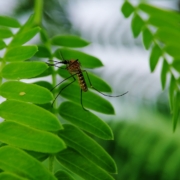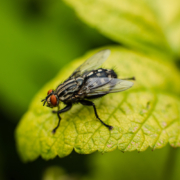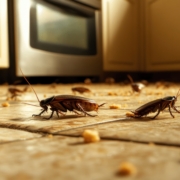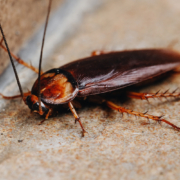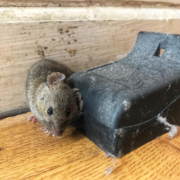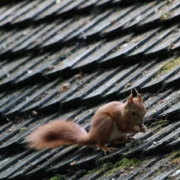5 Ways To Mosquito-Proof Your Yard
As summer approaches the warm weather brings with it the unwelcome presence of mosquitoes. These pests not only cause itchy bites but also pose health risks by transmitting diseases. At Lincoln Pest Control, we understand the importance of enjoying your outdoor spaces without the nuisance of mosquitoes. Here are five effective strategies to mosquito-proof your yard:
Eliminate Standing Water
Mosquitoes breed in stagnant water, making it crucial to remove any potential breeding grounds. Common culprits include:
- Clogged gutters
- Unused flower pots
- Birdbaths
- Old tires
- Children’s toys
Regularly inspect your yard for standing water and eliminate it. For water features like ponds that can’t be drained, consider using mosquito dunks—biological control agents that target mosquito larvae without harming other wildlife.
Maintain Your Landscaping
Overgrown grass and dense vegetation provide ideal resting spots for adult mosquitoes. Keep your lawn mowed and trim bushes and shrubs regularly to reduce these hiding places. Additionally, remove yard debris such as leaves and grass clippings that can retain moisture and attract mosquitoes.
Utilize Natural Repellents
Certain plants emit scents that mosquitoes find unappealing. Incorporate the following into your garden or place them in pots around outdoor seating areas:
- Lavender
- Lemongrass
- Marigolds
- Basil
- Peppermint
While these plants can help deter mosquitoes, they are most effective when their essential oils are released—such as by lightly crushing the leaves.
Install Outdoor Fans
Mosquitoes are weak fliers and tend to avoid areas with strong air movement. Setting up outdoor fans in patios or decks can create a breeze that makes it difficult for mosquitoes to fly, significantly reducing their presence in those areas.
Consider Professional Mosquito Control Services
For comprehensive protection, professional mosquito control services can provide targeted treatments to reduce mosquito populations in your yard. At Lincoln Pest Control, our experts assess your property and implement effective strategies tailored to your specific needs, ensuring a mosquito-free environment for you and your family.
Enjoy a Mosquito-Free Summer
By implementing these strategies, you can significantly reduce the mosquito population in your yard and enjoy your outdoor spaces without the constant annoyance of bites. If you’re seeking professional assistance, Lincoln Pest Control is here to help. Contact us today to learn more about our mosquito control services and how we can make your yard a more comfortable place all summer long.
Lincoln Pest and Property Solutions is a locally owned and operated business serving Rhode Island & Southeastern Massachusetts. As one of the leading pest control companies in RI, our mission for over 35 years has been simple: Provide innovative and effective pest control solutions for your home or business, while maintaining a safe environment. We use the latest in eco-friendly technology to keep your home or place of business safe and pest free.

